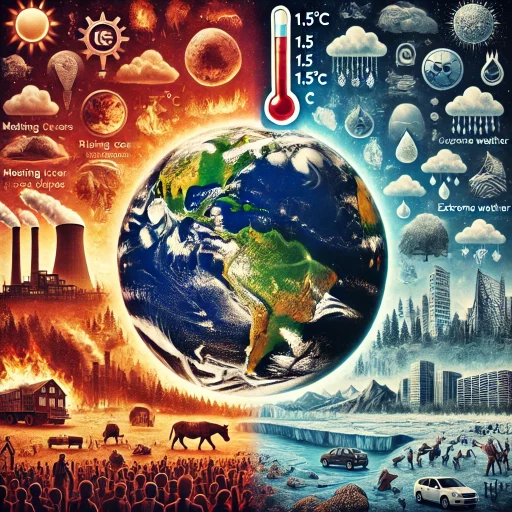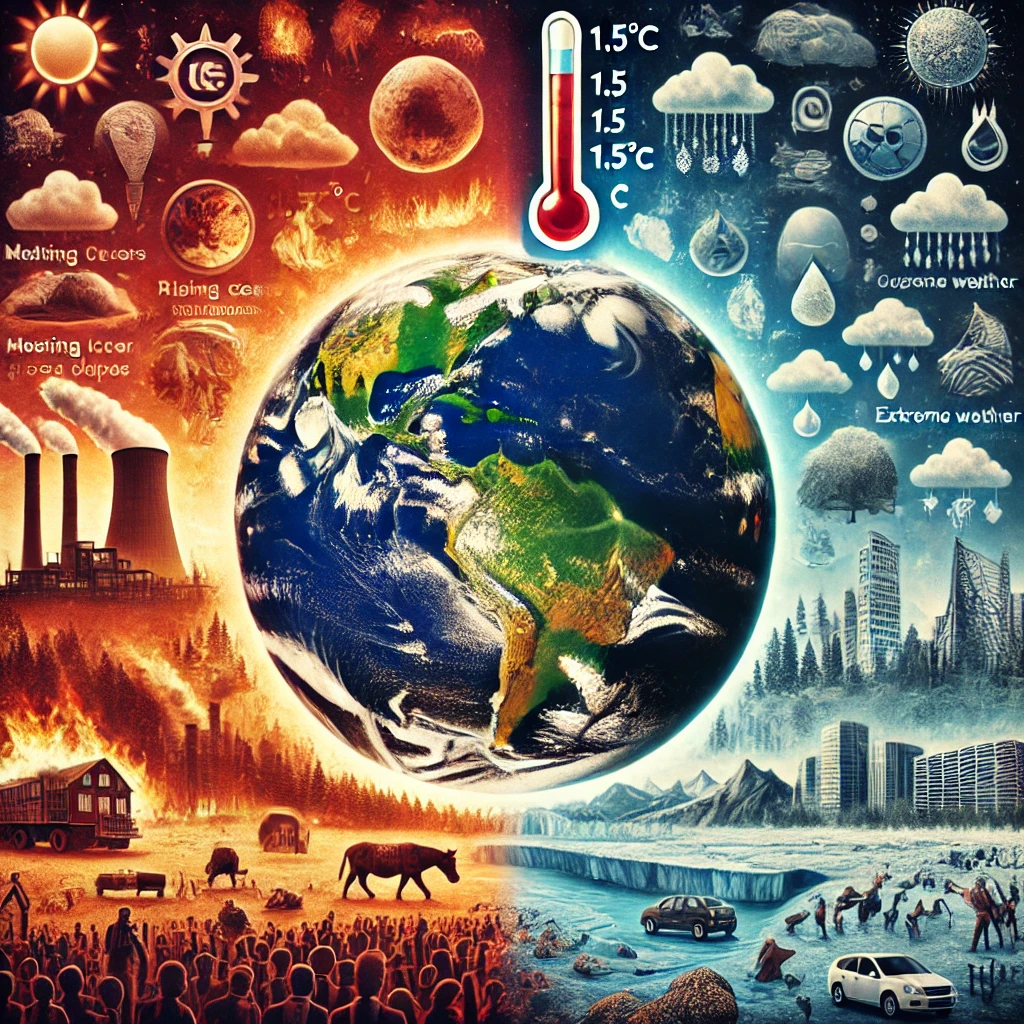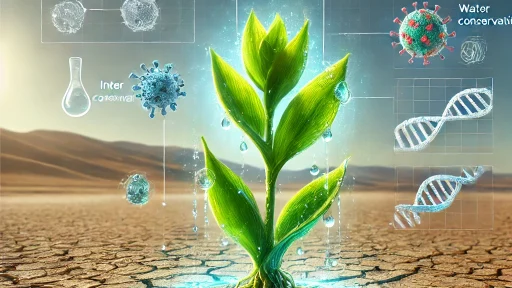The Impact of Human Activity on Earth’s Climate
Human activity has led to a 1.5°C increase in Earth’s temperature since 1700. This milestone reveals the extent to which our actions have shaped the climate, with visible impacts on ecosystems, weather patterns, and daily life.
Tracing the Roots of Climate Change
By studying climate records over the last few centuries and analyzing patterns in human activities—such as industrial emissions, fossil fuel use, and deforestation—scientists observed that human-induced greenhouse gas emissions have driven this temperature rise. Evidence shows that by 1900, our impact was already noticeable. In recent decades, however, the warming has rapidly intensified, reaching this critical 1.5°C mark.
Real-World Effects of Rising Temperatures
A temperature increase of 1.5°C may seem small, but it has significant consequences. As Earth warms, we experience more frequent extreme weather events—like severe heatwaves, droughts, and intense storms. These changes strain ecosystems, endanger biodiversity, and can disrupt food production. In coastal areas, rising sea levels linked to melting ice caps increase the risk of flooding, threatening millions of people’s homes and livelihoods.
Taking Action to Protect the Future
Scientists warn that exceeding the 1.5°C threshold could lead to permanent damage to Earth’s climate systems. However, understanding our impact empowers us to make meaningful changes. By reducing emissions, transitioning to renewable energy, and conserving natural resources, we can slow further warming. This research underscores the importance of collective action to mitigate climate change and safeguard our planet for future generations.
Source: New Scientist





